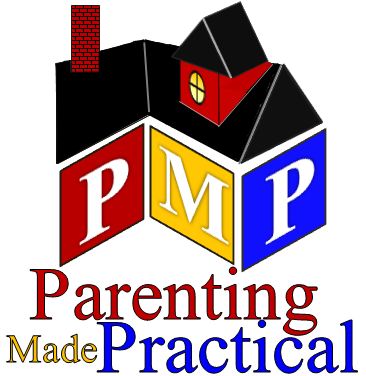Joey & Carla Link
September 30, 2020

When my kids were growing up, I thought for the most part I knew what they were thinking. It was usually written all over my girls’ faces. It wasn’t until they were in their late teen years I realized that what was written on their faces was what they were feeling, and what I thought they were thinking rarely had anything to do with what they were feeling. Kids often see things from a different perspective than ours, which affects their feelings and what they think about it. A popular TV show when Carla and I were growing up was a show called “Bewitched”. It was about a witch who was married to a “normal” guy. Back in the 60’s, smoking was a common outlet for people. The major campaign against it had not yet started. You could light up no matter where you were. The two leading actors in “Bewitched” were heavy chain smokers. They had a young daughter on the show named “Tabitha” who was played by Erin Murphy. Years after the show had been off the air Erin gave an interview saying, “I remember my parents were always saying ‘smoking is bad, smoking is bad,’ and I remember thinking ‘If smoking is bad, then why is everybody around here doing it?’” Kids are observing, comparing and always thinking about what is happening, what people are saying to them and trying to filter it through all the information they have stored in their minds, hearts and emotional wells. They try to fit all the information they get in categories of right and wrong and what their parents think about it. When parents set a double standard in front of their kids (when what they say they should do does not match with what they do), it causes confusion and puts road blocks in their kids’ minds as to how they are supposed to think and act. They generally find out when they get in trouble for something they say or do which causes more confusion and often anger as parents are rarely consistent about enforcing their expectations. Think of it like this. Everything your kids think about goes into folders stored into the file cabinet of their mind. Let’s say one folder is titled “What I Can Do” and another is titled “What I Get in Trouble For“. The folders are zipped up tight until it is unzipped. When parents set a double standard, the zippers get stuck and jam when your child is trying to get into his folders to see how he is supposed to respond to you. The only way to unstick the zippers is to come up with a conclusive way to put the issue in either a “right” (I can do it) or “wrong” (I get in trouble if I do it) folder in their mind which will eventually travel down to their heart as a belief and conviction as to how they should live out their lives on a day to day basis. How can parents help their kids categorize right and wrong behaviors? 1. Talk! It may sound too simplistic but rarely do parents and kids talk about what is right to do and what is wrong regarding their daily lives. Parents typically give reminders and lectures but rarely explain WHY right is right and wrong is wrong. I worked to have time like this with my kids when we drove around town doing errands or on trips. Talking and asking questions about non-important issues of my kids’ lives unlocked the door for open dialogue when important issues came up. It is vital your questions do not sound like an interrogation or your kids will clam up. I remember one day, one of my daughters, out of the blue when we were doing errands asked me “Why do people steal?” A friend of hers had stolen something and she was working through the right and wrong of it. Since her friend had enough money to buy what she took our daughter didn’t understand why she didn’t just pay for it. Please don’t start these conversations with “What?! Why are you asking? Are you thinking of stealing something?” and so forth. It will only make your child wish she had never asked in the first place and ensures she won’t again. 2. Listen: Parents are too busy. They are always thinking about their emails, texts and social media messages along with other issues and the family’s (non-pandemic) activities. When you are with your kids, you need to listen to what they are saying. Ask questions like “How did that make you feel?” I remember when I first got a cell phone this same daughter was in the van with me and I took the opportunity to make a call. Later she said to Carla, “I don’t like Dad having a cell phone. I can’t talk to him anymore.” Please put your phone down if you have it in your hand when one of your kids wants to talk to you. And please never pull it out of your pocket during a conversation with any of them. Nothing you do will tell them they aren’t important to you more than this. 3. Ask Questions: Rarely will your child come out with all that they are thinking because they have not organized all of their thoughts yet. Ask them questions. Here are a few to get you thinking:
- How will that affect them?
- If you did what your friends are thinking of doing what kind of consequences could come back on you?
- How will it affect your relationships?
- What does Jesus have to say about that issue?
Our kids are always thinking, usually about how things will affect them. Helping them work things through in their minds when they are in their younger years will go a long way to them trusting what you say in their teen years.
